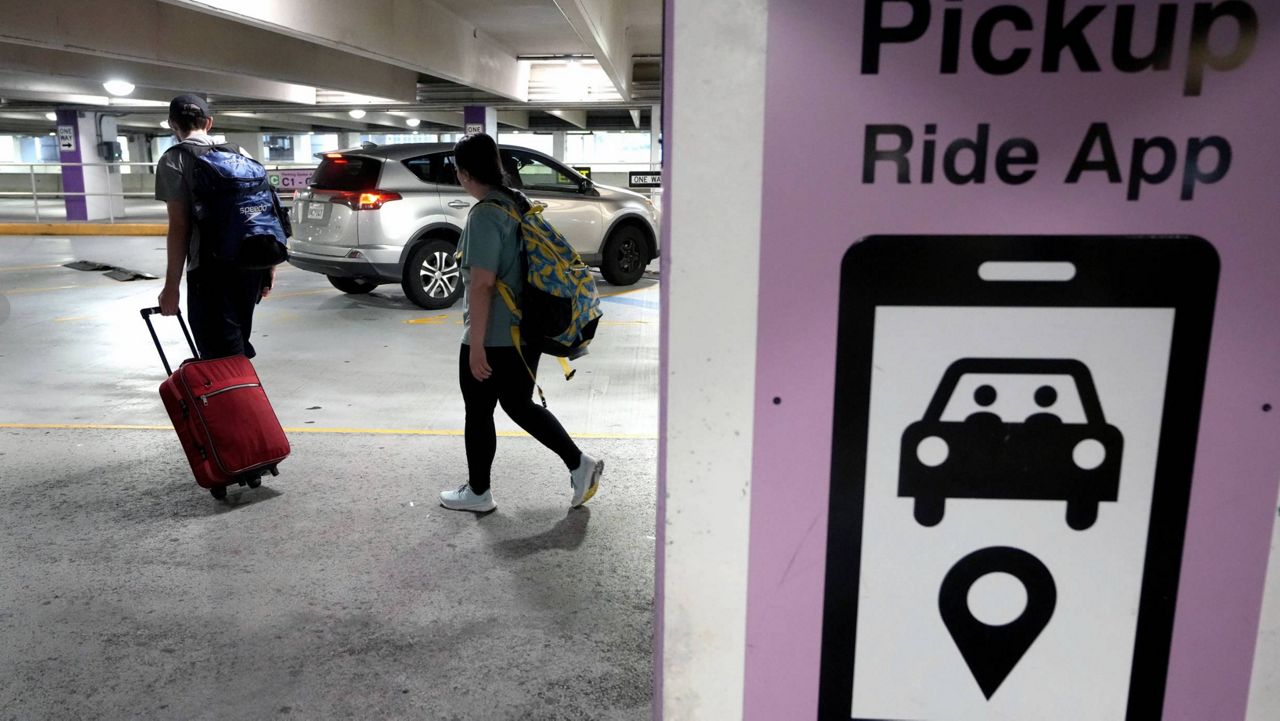New legislation co-introduced Thursday by U.S. Sen. Brian Schatz, D-Hawaii, would boost pay for app-based workers and ensure that they have access to information on how scheduling, compensation, monitoring and other key employment conditions are administered.
What You Need To Know
A study conducted by the trade association Flex, which represents ride-share and other app-based work businesses, found that about 7.3 million Americans engage in app-based work, providing a $32 million economic boost to restaurants, grocers and other businesses and indirectly supporting another 2.1 million jobs
According to the study, there are 22,000 active app-based workers in Hawaii and about 30% of Hawaii residents have earned income on app-based platforms
As so-called “platformed” employment has grown, scrutiny of the sector has likewise intensified, with government and academic studies finding evidence of poverty-level wages, lack of benefits, wage and employment discrimination and frequent misclassification of app-based workers as independent contractors who lack employment-based rights and protections
The Empowering App-Based Workers Act would require disclosure of electronic monitoring and automated decision systems uses, including how they are used to determine pay and other work decisions. It would also require platformed businesses to provide itemized receipts to workers and consumers after every work assignment, as well as weekly pay statements with relevant information on their compensation
“Every day rideshare drivers and delivery app workers work long hours and travel many miles to make a living, often without knowing how much money they’ll make,” said Schatz, who joined Sen. Chris Murphy, D-Conn. in introducing the so-called Empowering App-Based Workers Act. “Our bill would shed some light on how apps determine work assignments and pay, ensuring workers are treated and paid fairly.”
A study conducted by the trade association Flex, which represents ride-share and other app-based work businesses, found that about 7.3 million Americans engage in app-based work, providing a $32 million economic boost to restaurants, grocers and other businesses and indirectly supporting another 2.1 million jobs.
According to the study, there are 22,000 active app-based workers in Hawaii and about 30% of Hawaii residents have earned income on app-based platforms.
U.S. Bureau of Labor Statistics data indicates that the percentage of people of color who engage in app-based work (42%) is significantly higher than the overall workforce (29%).
As so-called “platformed” employment has grown, scrutiny of the sector has likewise intensified, with government and academic studies finding evidence of poverty-level wages, lack of benefits, wage and employment discrimination and frequent misclassification of app-based workers as independent contractors who lack employment-based rights and protections.
Detractors have also noted a widespread lack of transparency among businesses that sponsor digital labor platforms.
As the bill states, “while the electronic monitoring tools and automated decision-making systems of businesses that use digital labor platforms dictate the experience of workers and consumers on digital labor platforms, their presence, purpose, and mechanics are, too often, wholly opaque to workers, consumers, voters, and policymakers. This opacity creates profound information asymmetries between these groups and the corporations that own or operate digital labor platforms.”
The Empowering App-Based Workers Act would require disclosure of electronic monitoring and automated decision systems uses, including how they are used to determine pay and other work decisions. It would also require platformed businesses to provide itemized receipts to workers and consumers after every work assignment, as well as weekly pay statements with relevant information on their compensation.
The bill would further require that rideshare workers receive at least 75 percent of the amount paid by consumers and prohibit platforms from using interfaces that contain unfair or deceptive information on compensation.
The measure has received support from numerous worker advocacy groups, labor unions, employment law organizations and others.
“Senator Schatz’s bill is a great first step toward protecting app-based workers from hidden fees, undue surveillance and algorithms that violate their civil rights,” said AFL-CIO director of advocacy Jody Calemine. “It also creates mechanisms to hold Big Tech accountable when their greed harms workers.”
Michael Tsai covers local and state politics for Spectrum News Hawaii. He can be reached at michael.tsai@charter.com.

